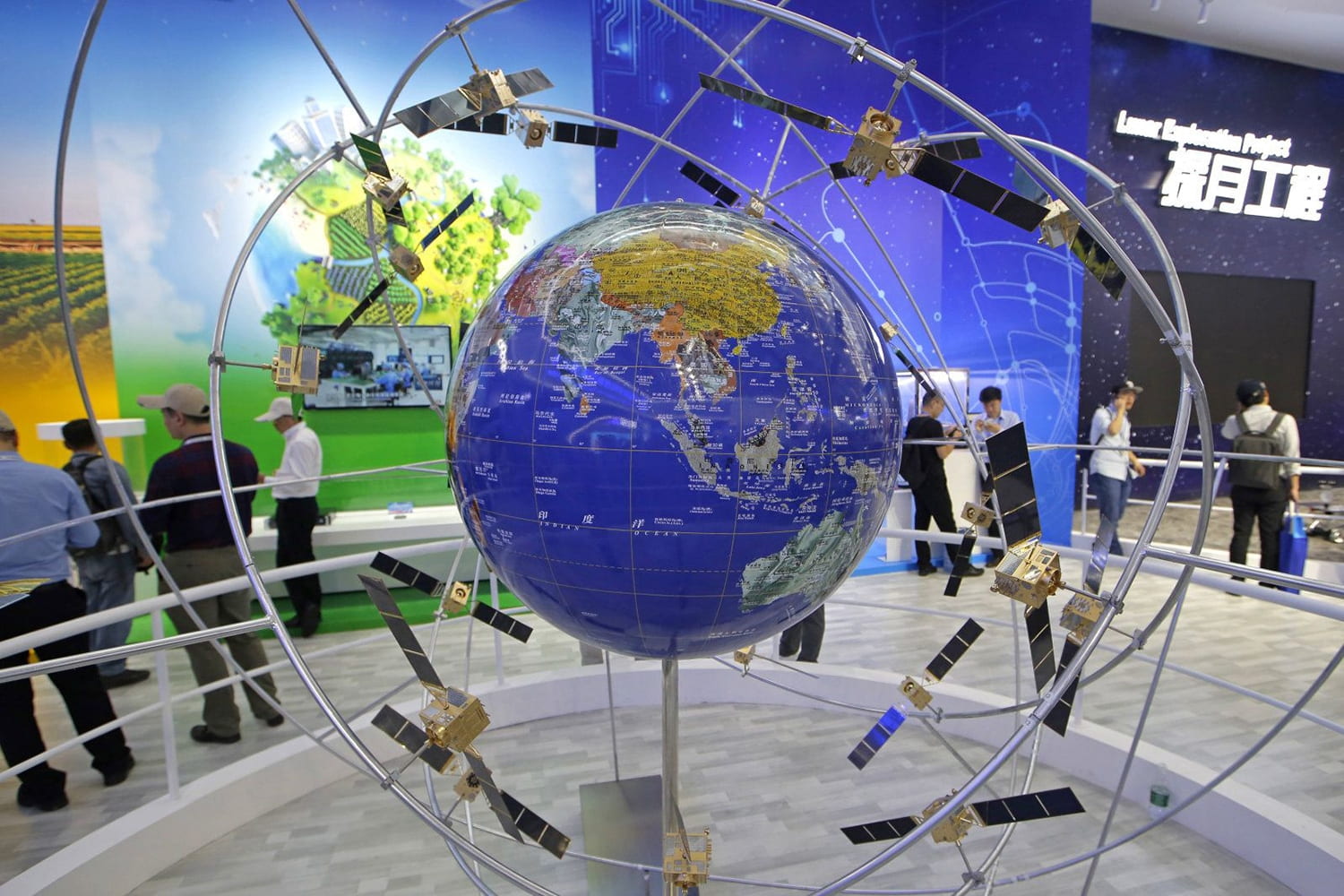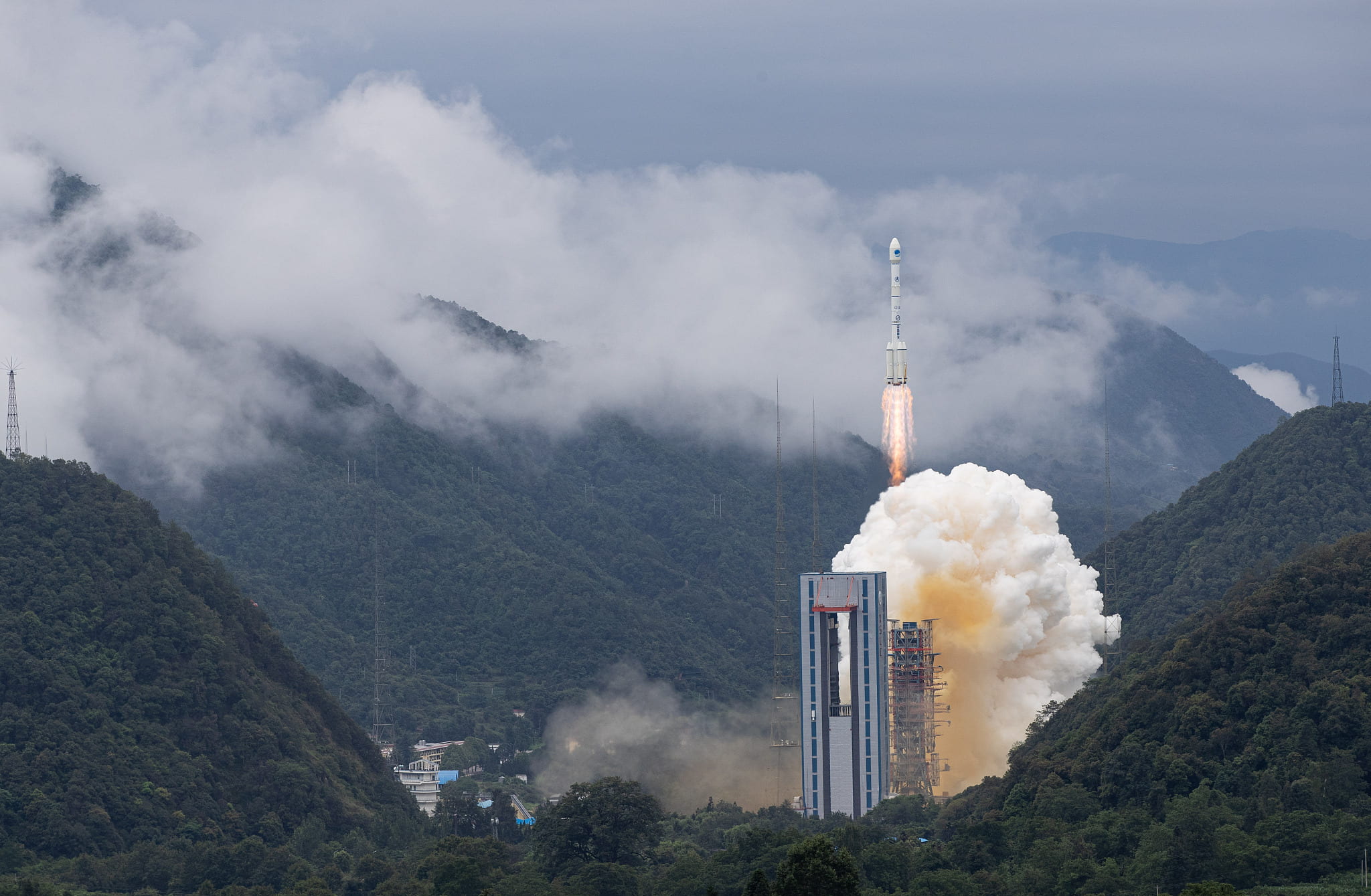
Beidou Satellite Navigation System (BDS) is a satellite navigation system independently developed by China. After three generations of research and construction, the Beidou program has launched about 60 satellites, of which 30 satellites serve as the Beidou-3 global navigation system to provide global users with all-weather, all-time high-precision positioning, navigation, and timing services.
BDS can be regarded as China’s masterpiece in the field of information infrastructure. At the 2020 China International Telecommunications Exhibition Main Forum, Cheng Jie, an expert from China Mobile’s Shanghai Industrial Research Institute, said that Beidou system infrastructure will become an important foothold for new infrastructure. Beidou system is like a pair of invisible big hands in China’s information infrastructure, constructing China’s tiandi network society.
BDS complies with the standard definition of modern infrastructure. It is a kind of “underlying base or foundation, especially for a system”. At the same time, it is also a highly integrated basic facilities needed for the functioning of a community or society. The use of BDS in various information fields makes it perfectly in line with what Edwards said about infrastructure in Infrastructure and Modernity.
So, can its use-value be analyzed in multi-scales? Below I try to find out the role of bds on the macro, meso, and micro levels and make some prospects for its future development.
BDS on the mesoscale: large technological system
BDS like ARPA and other systems is used as a large-scale technological system in the military field. The military purpose of Beidou at the beginning of its birth was even more obvious. At the same time, Beidou is also widely used in agriculture, forestry, and fishery, such as the precision operation of drones to spread pesticides, the positioning of offshore fishing boats, and the real-time information of buses. BDS is advancing China’s modernization, and modernization, in turn, also promotes the development of science and technology in the direction people hope.
Because of the existence of the Beidou system that people’s requirements for information speed continue to increase. At the same time, human society has become increasingly dependent on technology. During this year’s epidemic, the use of BDS in the health code system further improved the detection accuracy and laid the foundation for its further development in the field of social surveillance. This interweaving of social determinism and technological determinism constitutes the powerful role of Beidou in the field of middle view.
BDS on the microscale: convenience of people
Since the China National Space Administration is a national institution, we cannot say that its interest or purpose orientation is very different. But we can also analyze it from the perspective of “user heuristic”. The general public’s use of BDS is concentrated in the navigation field; from a macro perspective, the construction of the Beidou system has fully considered people’s requirements for “positioning”.

First of all, due to the development of globalization, people are more concerned about their position and hope to record their lives through their position. For example, the location function of WeChat Pengyouquan, as well as the address information that is automatically compiled by mobile phones when taking photos, are all manifestations of people’s greater concern for locations. At the same time, the fast-paced modern life makes people hope to achieve high efficiency in transportation, so navigation software has become a piece of indispensable mobile phone equipment, and the real-time location of the delivery staff in the food delivery field also reflects this demand. Besides, there are a large number of positioning devices used for safety protection and conveniences, such as anti-lost positioning watches for children and the elderly. BDS in the civilian field has been continuously developed based on these aspects.
BDS on the macroscale: collaboration and control problem
At a larger latitude, we need to move the Beidou system to a larger time and space. In terms of time, Beidou is still in the growth stage, and the high-priced chips make it currently unable to directly compete with GPS. In the military field, China uses BDS to prevent information leakage, but in the civilian field, they pursue cooperation with GPS rather than independence. In terms of space, whether it will form a control problem, it may be more like a solution for China, making the country more manageable The people, improve the overall strategic awareness.

From the analysis of the BDS, it can be seen that technology and society are closely related to each other and promote each other. Whether technology determines society or society determines technology, it is a fact that is correct in a certain dimension and within a certain period. Today in Beidou, we see more of its role as an infrastructure in shaping China’s smart information city. How society affects his subsequent development depends on time to give us the answer.
Leave a Reply